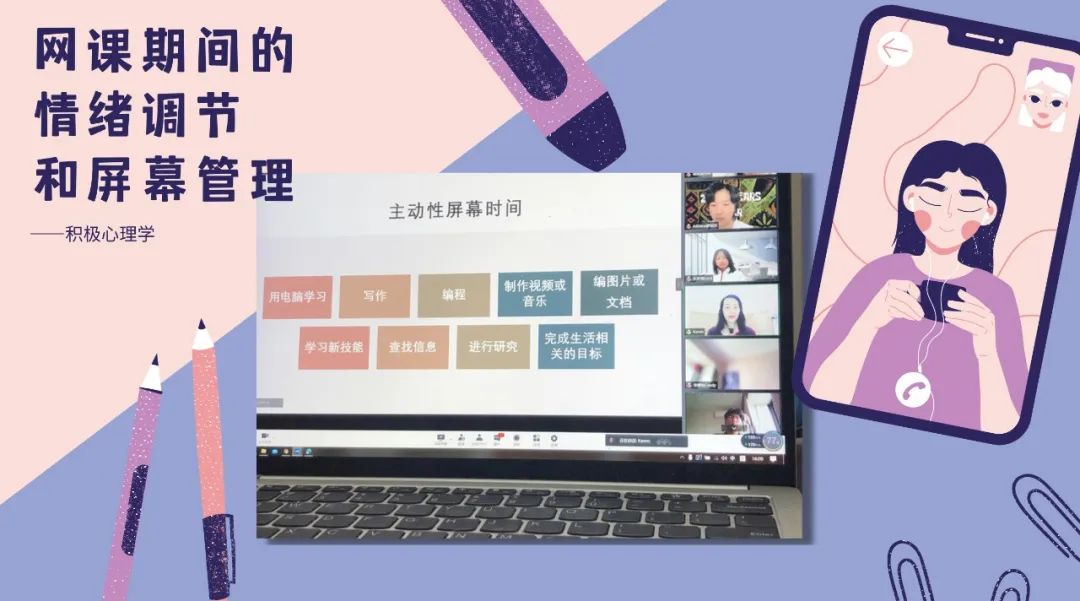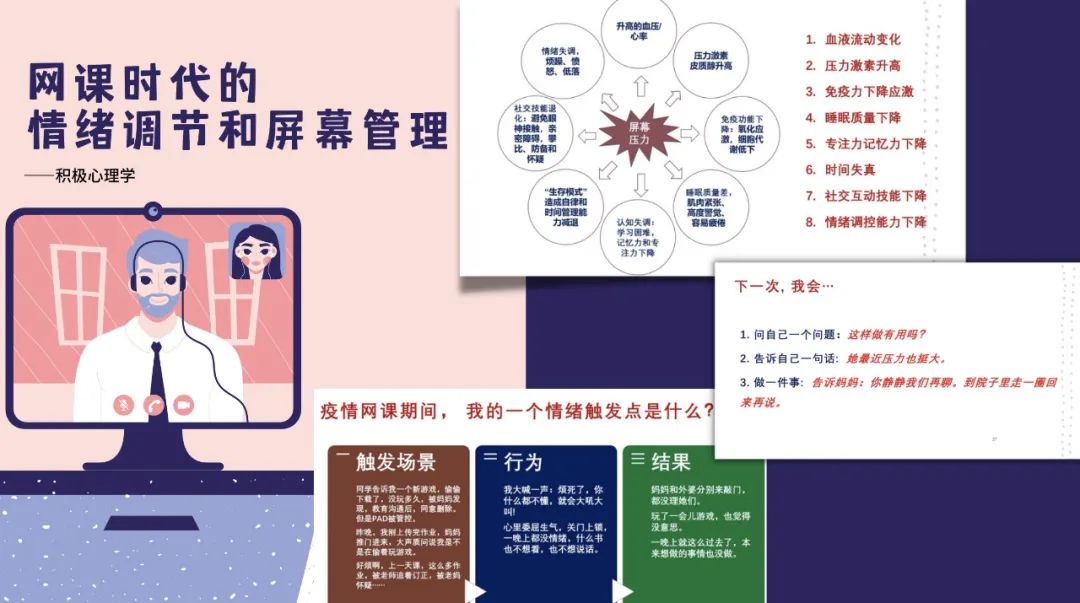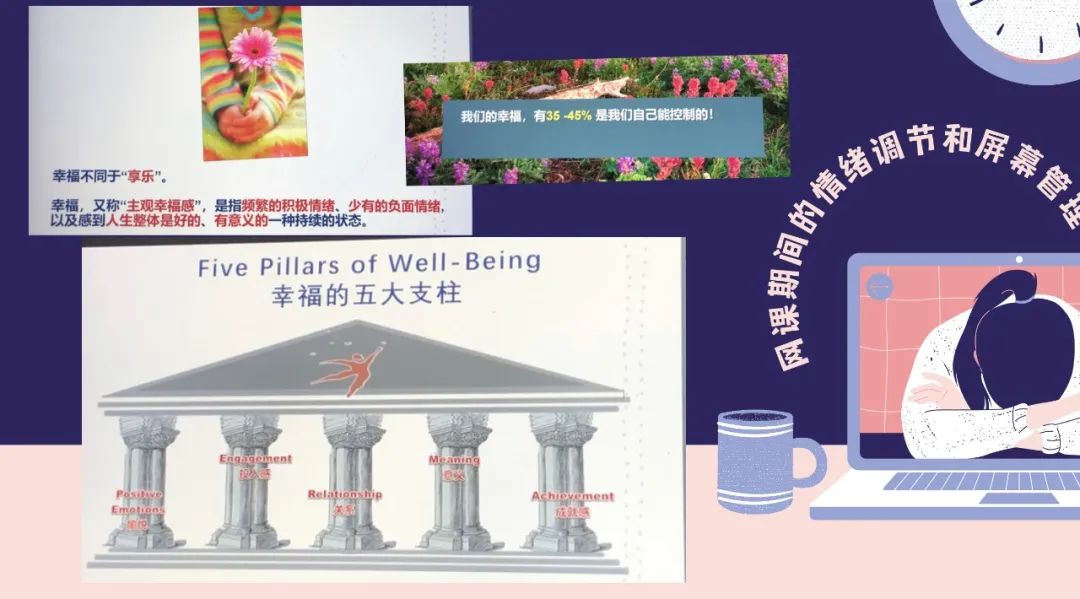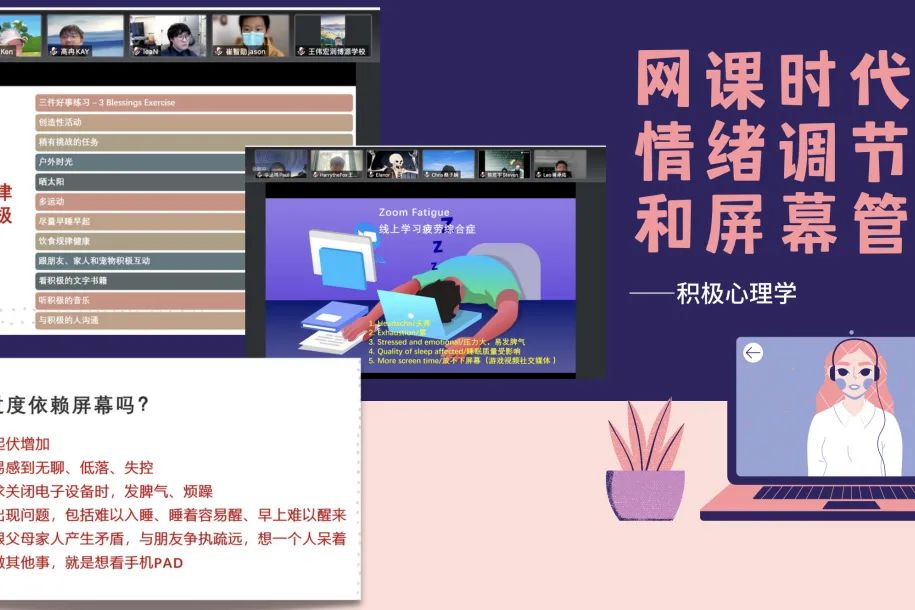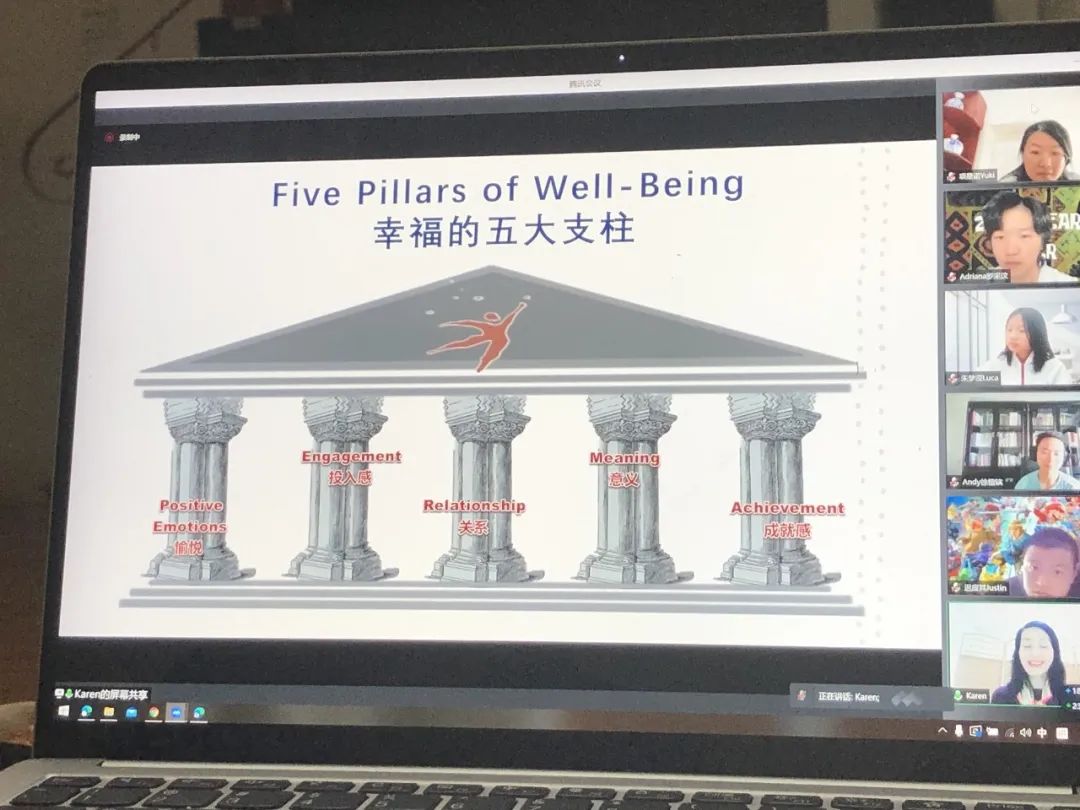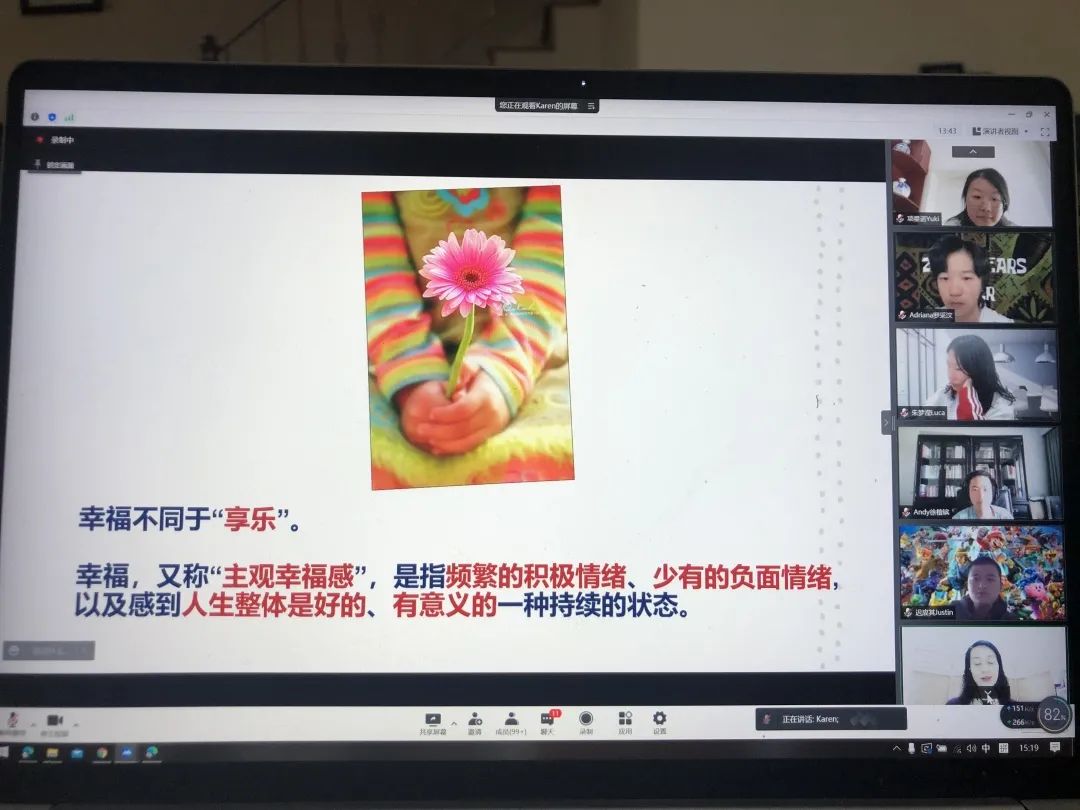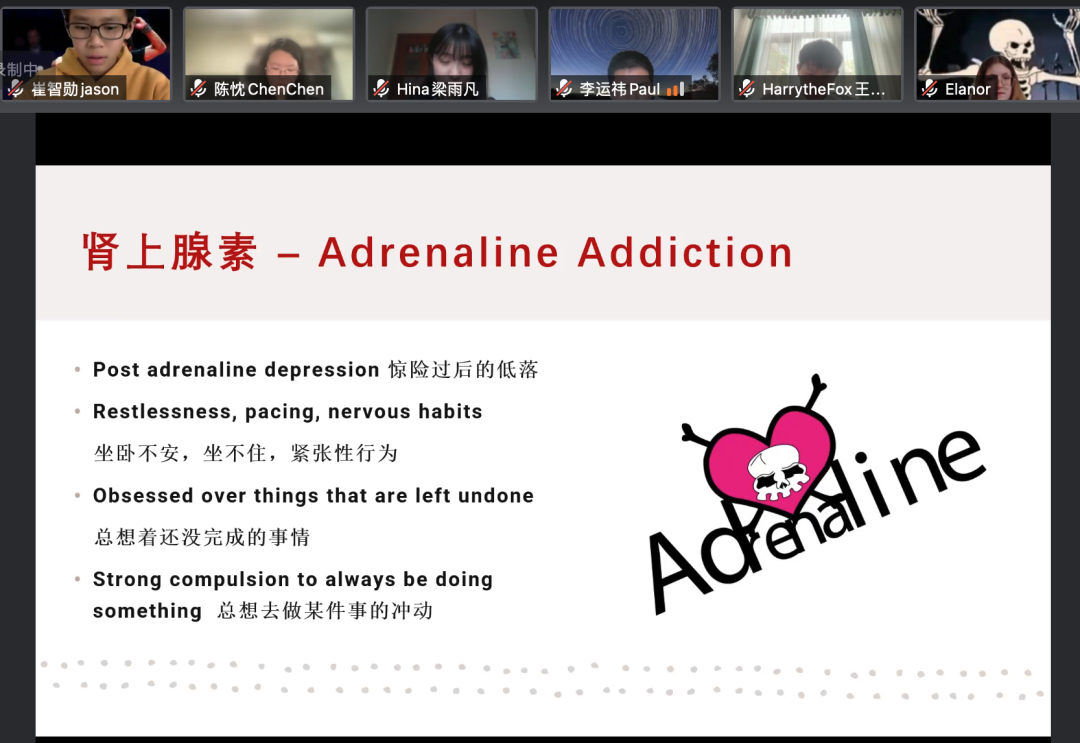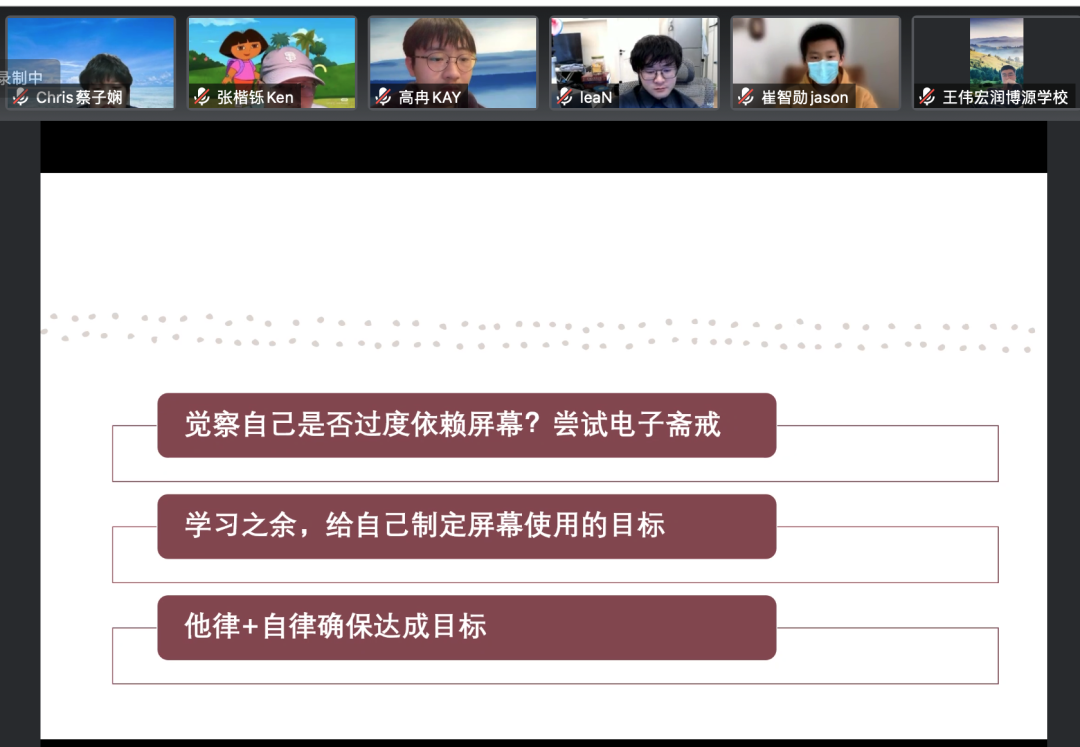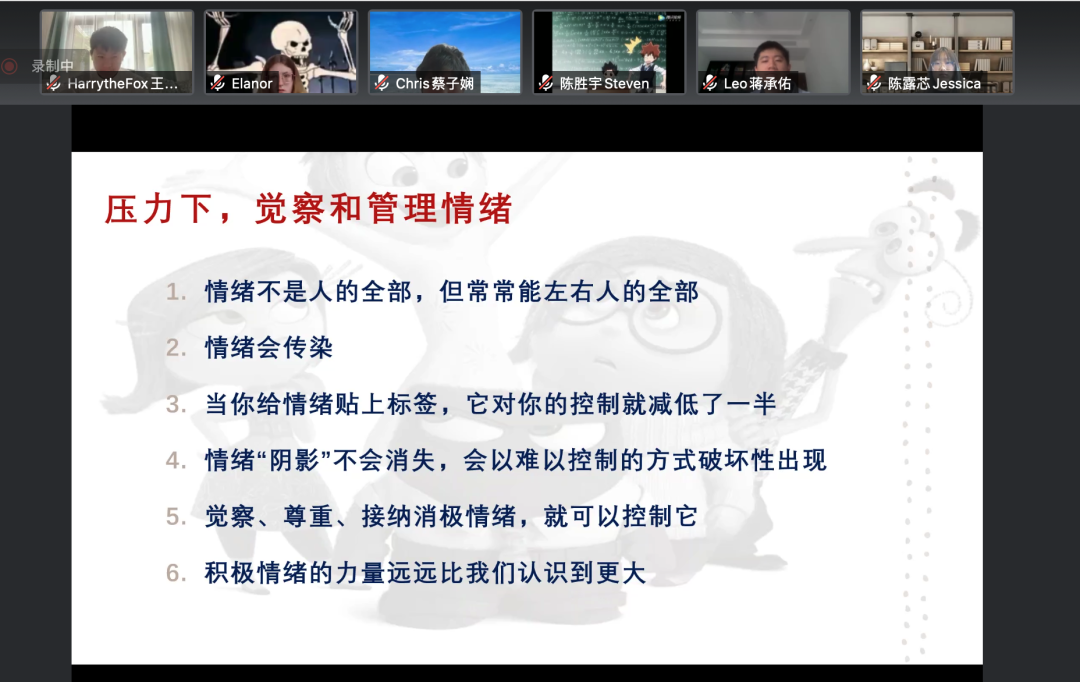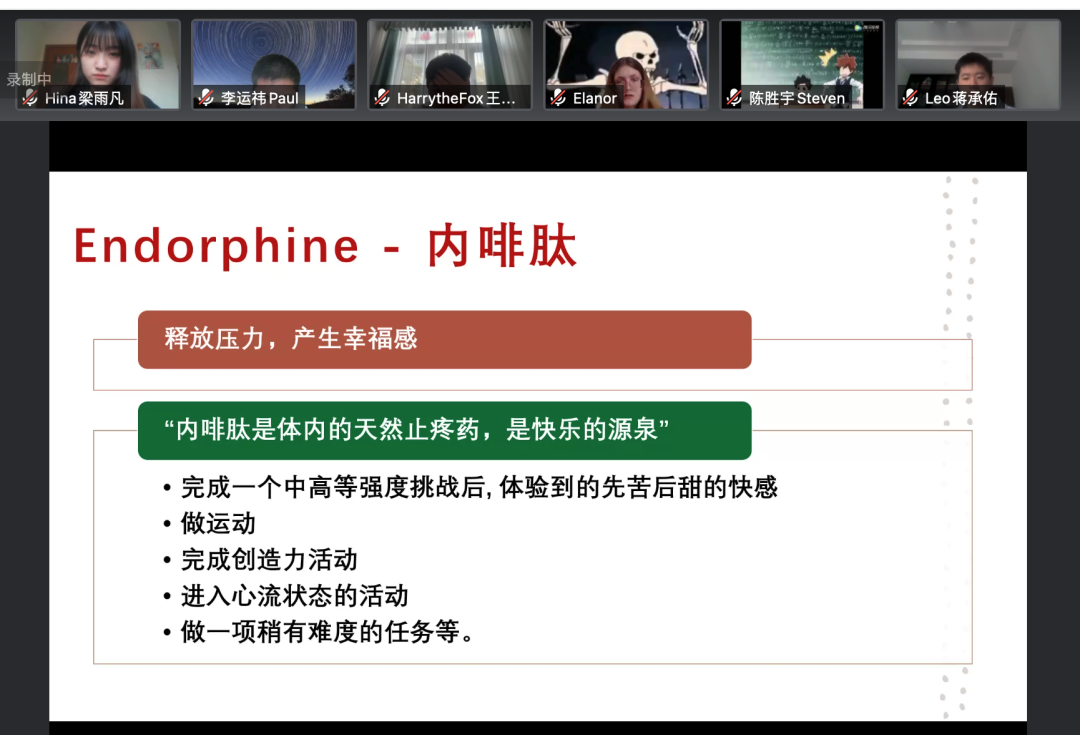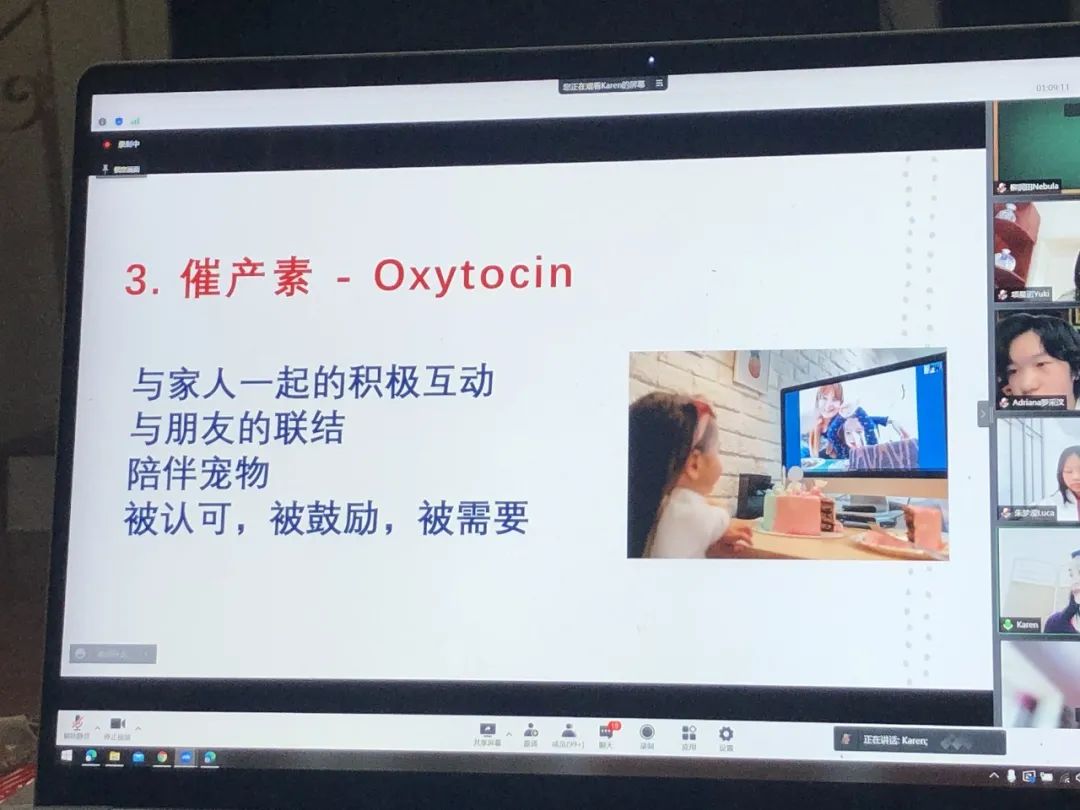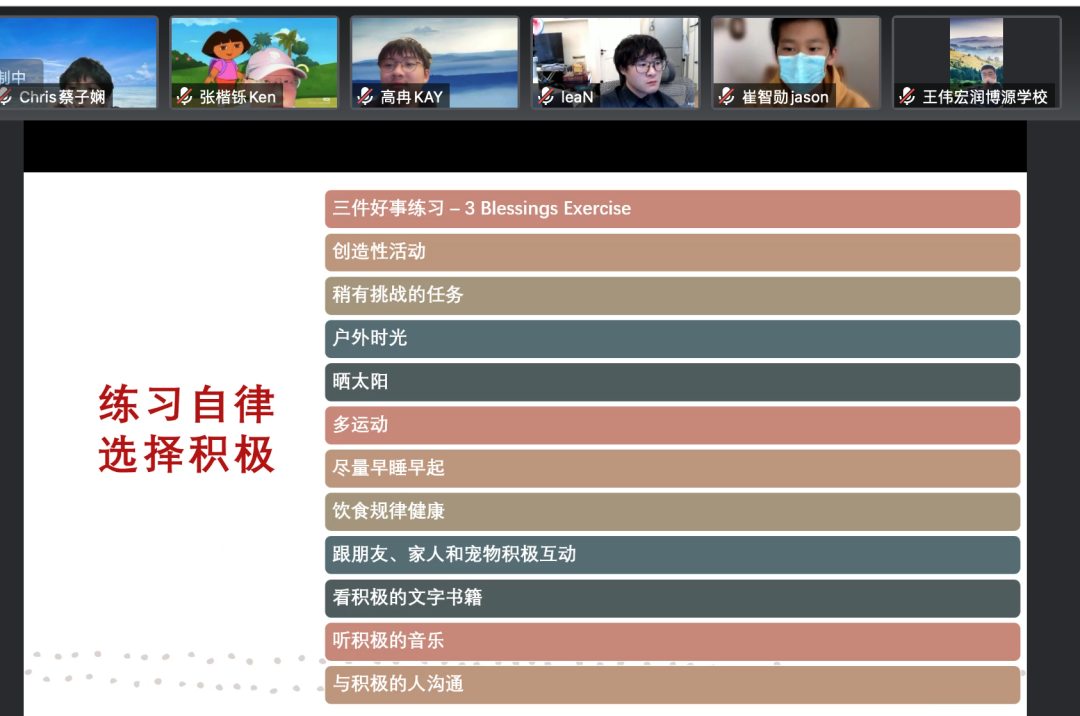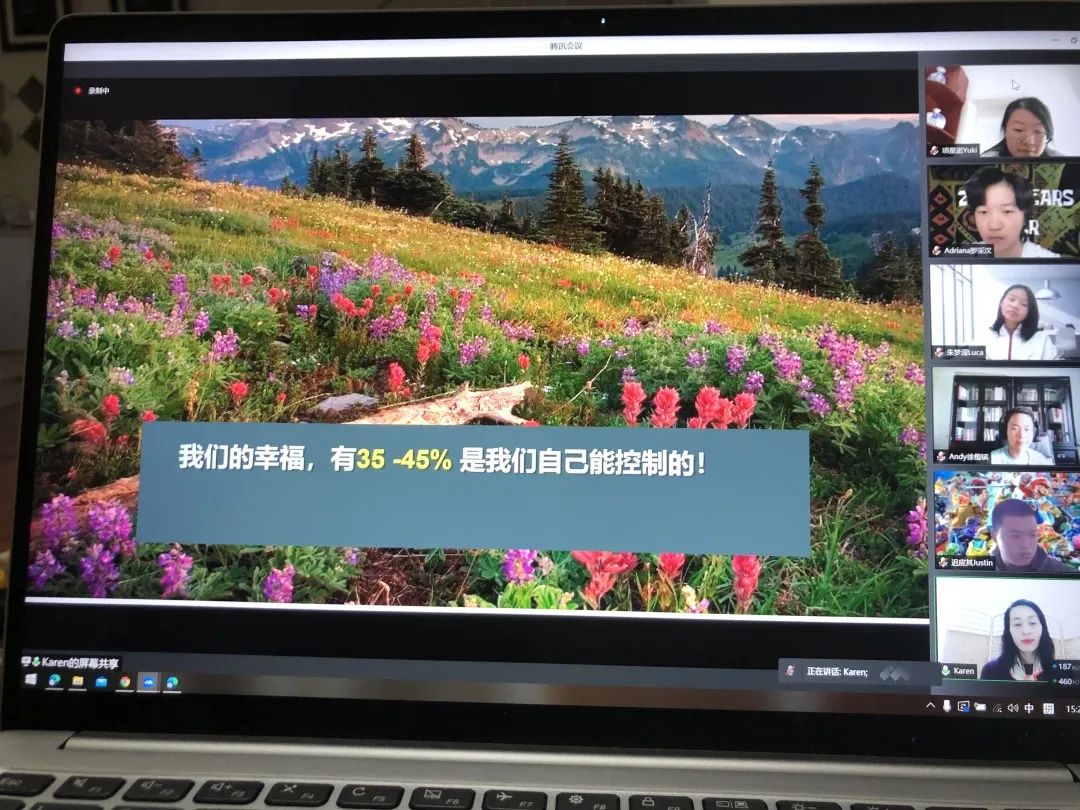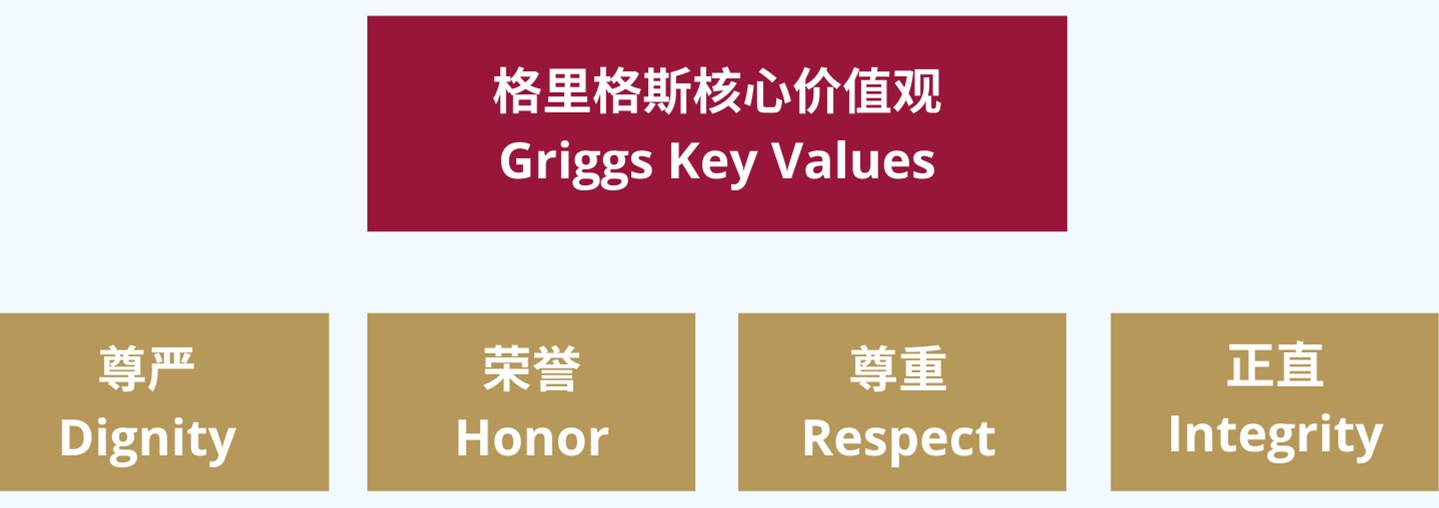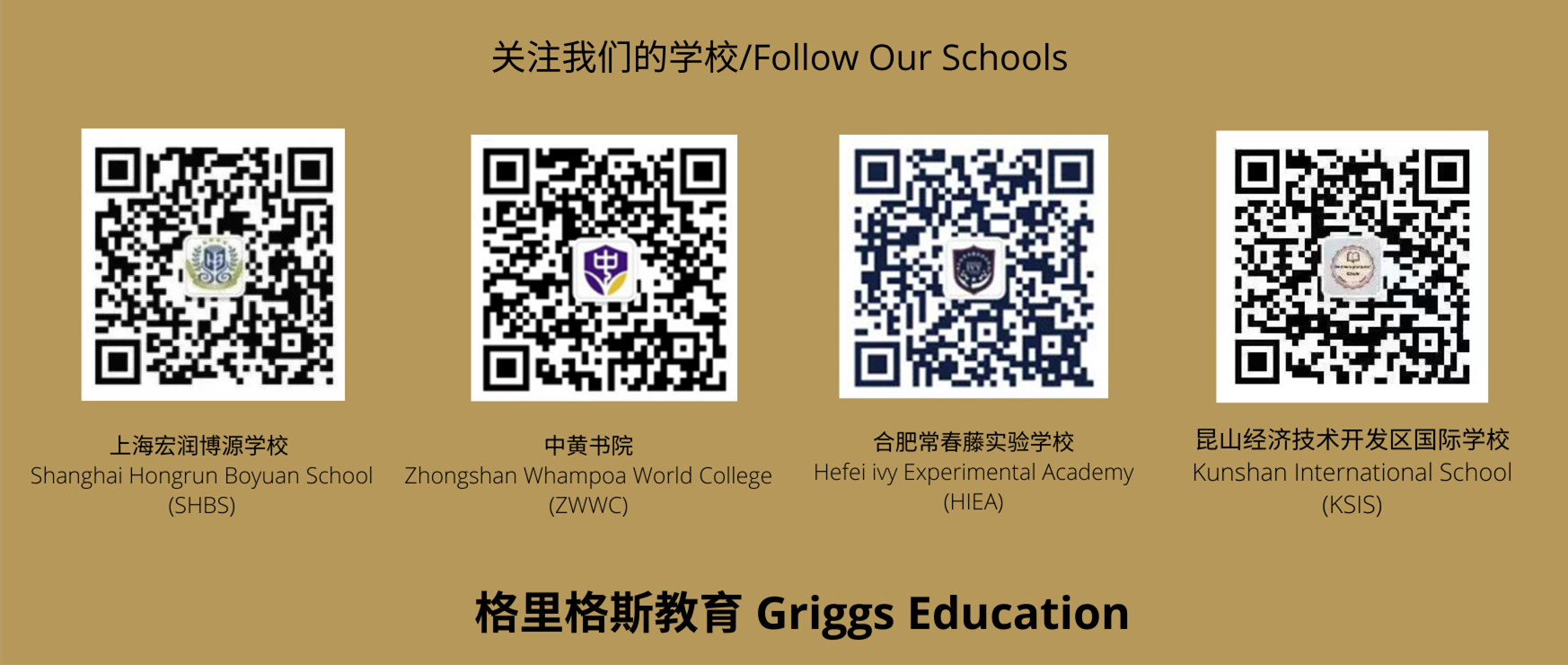March 28, 2022 was the first day when Shanghai Municipal Government carried out its phased lock-down: Pudong, and then Puxi. It was also a day of the third week for students to attend online classes. In order to better help students handle their possible frustrations, and also help them develop habits of positive thinking and calmly brave the uncertainties, our school invited Dr. Zong Min to share "On Emotion and Screen Management During Online Class Era”.
Dr. Zong said, “Positive psychology focuses on how to develop positive personality and positive thinking habits so as to boost immunity. Psychology is a discipline based on brain neuroscience. If we can raise our awareness of brain science, we will all have the power to convince ourselves to choose and create happiness.
“Happiness is different from "pleasure." Happiness, also known as "Subjective Well-being", refers to an ongoing state of frequent positive emotions and few negative emotions, and a feeling that life as a whole is good and meaningful.” She guided us through a simple assessment to see how happy we were at the moment, and helped us solve the mystery of happiness: the Happiness Equation and the Five Pillars of happiness.
The happiness equation: Sustainable Happiness = Set Range + Circumstances + Factors Under Voluntary Control. While our happiness is partly determined by our genes and our current circumstances, 35%~ 45% percent of our happiness is under our own control! We all have the power to convince ourselves to choose and create our own happiness.
Five Pillars of Well-being: Positive Emotions, Engagement, Relationship, Meaning, and Achievement. She explained each pillar to us and asked us to think about how to boost our sense of happiness.
After finding out how to achieve happiness, Dr. Zong shared with us knowledge of brain science related to emotions and guided us through exercises that help manage our emotions so that we could tap into the great power produced by positive emotions.
“The emotional brain reacts nearly a hundred times faster than the rational brain does. Some scenes or encounters can stir up our emotions instantly, while our rational thinking reacts relatively slowly. Therefore, we need to practice and develop the habit of thinking before acting.”
Learn to Recognize and Manage Our Emotions Under Stress; When we label an emotion, its power over us decreases by half. By recognizing, respecting, and accepting negative emotions, we can control them. Positive emotions are far more powerful than we realize.
Physiologically, teenagers haven’t fully developed to control their emotions, so they need self-discipline exercises. Note down the situation that triggered your negative emotions, reactions, and the consequences, and think:
Next time, I'll
1. Ask myself a question: will this work?
2. Tell myself: the other party might have been stressed lately
3. Do one thing: Take a moment to calm down and talk about it later
Dr. Zong went on to say that for teenagers born in the Internet age, their mood was closely linked to how long they use their screens. Excessive use of screen can lead to physical symptoms such as fatigue and poor brain responsiveness. "Being addictive is inherent in our brains, which is determined by dopamine and adrenaline in our bodies."
Dopamine is the hormone our bodies produce when we experience short-term pleasure (sweets, games, social likes). Adrenaline is the hormone our bodies produce when we do something really challenging, or even scary. These two hormones make us feel happy and excited, but they also have a marginal diminishing effect on pleasure, which means that more dopamine or adrenaline is needed to get the same pleasure or excitement over a short time interval. Without getting satisfied, we tend to get frustrated, moody, restless, nervous or impulsive.
"Every popular game also takes advantage of this psychological trait. By giving beginners some luck, increasing challenges, taking advabtage of their urgency to complete tasks, their need for social interaction, and so on, those games make us produce more dopamine and thus make us happy when we play. Similarly, to feel equally happy, we need to play the game for longer next time and gradually become addicted to it."
"Physiologically, teenagers haven’t fully developed to control their emotions, so heteronomy needs to be introduced to help them manage active and passive screen time and keep their passive screen time within reasonable limits." "Active screen time: time consumed when they use computers to study, write, program, make videos or music, edit pictures or documents, learn new skills, find information, conduct research, accomplish life-related goals. Passive screen time: time consumed on passive entertainment such as watching TV, browsing social networking sites and video sites." "Excessive passive screen time can impair proactive focus."
After pointing out the addictive nature of our brains, Dr. Zong also gave us a cure. "We also have three natural positive hormones in our bodies: endorphins, serotonin and oxytocin. We can stimulate the production of these three hormones to make us feel positive and better control our lives."
"Endorphins are the body's natural painkillers and mood elevators." We can stimulate the production of endorphins by completing a challenging task, doing sports, completing creative activities, or engaging in activities that make us enter a FLOW state.
Serotonin Helps wounds heal, strengthens bones, sharpens the brain, and fights depression (Excessive dopamine depletes serotonin!) We can stimulate the production of serotonin by reading positive and inspiring words, basking in the sun, going early to bed and early to rise and eating regularly and healthily.
Positive social interactions and connections can help the generation of Oxytocin. We can stimulate the production of oxytocin by making positive interactions with family, friends, and pets, and feeling recognized, encouraged, and needed.
Finally, Dr. Zong also gave us some suggestions on how to do Positive exercises. In The Q&A session, she answered questions raised by teachers, students and parents, and recommended books such as "Sustainable Happiness", "The Optimistic Child" and Raising Adult Children for us to continue learning and reading.
Dr. Zong's lecture benefited us a lot and taught us some practical knowledge and practice methods. In the middle of the lecture, some student asked the teacher if she had recorded the lecture so that he could share with his parents. Many thanks go to Dr. Zong for her pro bono lecture. Let’s put what we have learned from her lecture into practice together.
【From:Shanghai Hongrun Boyuan School】








